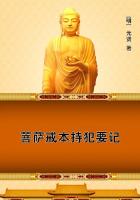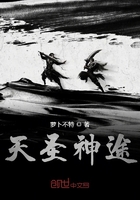"All these are the husbands of my spirit," said the priestess, waving the lamp in front of the lowest row of them, "Munganas who were married to the Asikas in the past. Look, here is he who said that he ought to be king of that rich land where year after year the river overflows its banks," and going to one of the first of the figures in the bottom row, she drew out a fastening and suffered the gold mask to fall forward on a hinge, exposing the face within.
Although it had evidently been treated with some preservative, this head now was little more than a skull still covered with dark hair, but set upon its brow appeared an object that Alan recognized at once, a ****** band of plain gold, and rising from it the head of an asp.
Without doubt it was the /uraeus/, that symbol which only the royalties of Old Egypt dared to wear. Without doubt also either this man had brought it with him from the Nile, or in memory of his rank and home he had fashioned it of the gold that was so plentiful in the place of his captivity. So this woman's story was true, an ancient Egyptian had once been husband to the Asika of his day.
Meanwhile his guide had passed a long way down the line and halting in front of another gold-wrapped figure, opened its mask.
"This is that man," she said, "who told us he came from a land called Roma. Look, the helmet still rests upon his head, though time has eaten into it, and that ring upon your hand was taken from his finger.
I have a head-dress made upon the model of that helmet which I wear sometimes in memory of this man who, my soul remembers, was brave and pleasant and a gallant lover."
"Indeed," answered Alan, looking at the sunken face above which a rim of curls appeared beneath the rusting helmet. "Well, he doesn't look very gallant now, does he?" Then he peered down between the body and its gold casing and saw that in his body hand the man still held a short Roman sword, lifted as though in salute. So she had not lied in this matter either.
Meanwhile the Asika had glided on to the end of the hall behind the heaps of treasure.
"There is one more white man," she said, "though we know little of him, for he was fierce and barbarous and died without learning our tongue, after killing a great number of the priests of that day because they would not let him go; yes, died cutting them down with a battle-axe and singing some wild song of his own country. Come hither, slave, and bend yourself so, resting your hands upon the ground."
Jeekie obeyed, and actively as a cat the priestess leaped on to his back, and reaching up opened the mask of a corpse in the second row and held her lamp before its face.
It was better preserved than the others, so that its features remained comparatively perfect, and about them hung a tangle of golden hair.
Moreover, a broad battle-axe appeared resting on the shoulder.
"A viking," thought Alan. "I wonder how /he/ came here."
When he had looked the Asika leaped from Jeekie's back to the ground and waving her arm around her, began to talk so rapidly that Alan could understand nothing of her words, and asked Jeekie to translate them.
"She say," explained Jeekie between his chattering teeth, "that all rest these Johnnies very poor crew, natives and that lot except one who worship false Prophet and cut throat of Asika of that time, because she infidel and he teach her better; also eat his dinner out of Little Bonsa and chuck her into water. Very wild man, that Arab, but priests catch him at last and fill him with hot gold before Little Bonsa because he no care a damn for ghosts. So he die saying Hip, hip, hurrah! for houri and green field of Prophet and to hell with Asika and Bonsa, Big and Little! Now he sit up there and at night time worst ghost of all the crowd, always come to finish off Mungana. That all she say, and quite enough too. Come on quick, she want you and no like wait."
By now the Asika had passed almost round the hall, and was standing opposite to an empty niche beyond and above which there were perhaps a score of bodies gold-plated in the usual fashion.
"That is your place, Vernoon," she said gently, contemplating him with her soft and heavy eyes, "for it was prepared for the white man with whom Little Bonsa fled away, and since then, as you see, there have been many Munganas, some of whom belong to me; indeed, that one," and she touched a corpse on which the gold looked very fresh, "only left me last year. But we always knew that Little Bonsa would bring you back again, and so you see, we have kept your place empty."
"Indeed," remarked Alan, "that is very kind of you," and feeling that he would faint if he stayed longer in this horrible and haunted vault, he pushed past her with little ceremony and walked out through the gates into the passage beyond.














